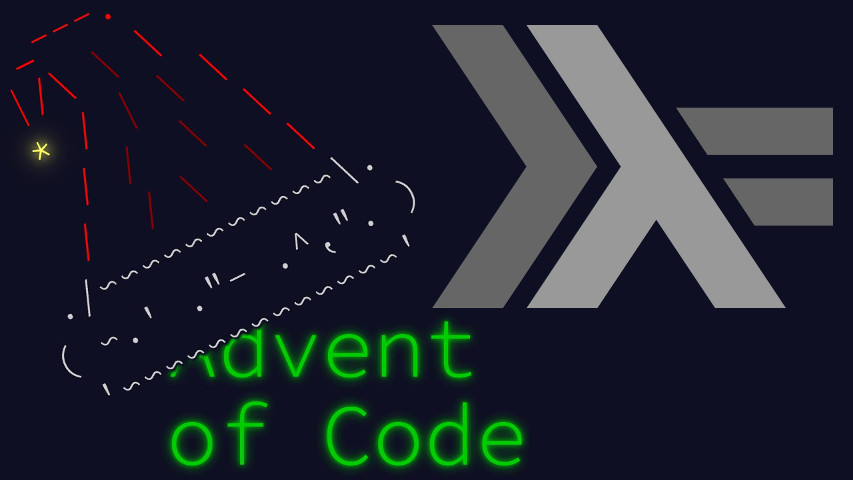Day 2 of Advent of Code brings back the perma-classic rock-paper-scissors. The gist of the day is to fill in a round’s data from partial information. We are always given the opponent move. In part 1 we determine outcome from our move. In part 2 we do the opposite: we determine our move from the outcome.
This post is literate Haskell post. Let’s clear the floor with a few imports.
import Control.Category ((>>>))
import Control.Applicative (liftA2)The model here is a classic rock-paper-scissors game. At each round, a player plays a move.
data Move = Rock | Paper | Scissors deriving EnumA round has three possible outcomes, relative to a specific player.
data Outcome = Defeat | Draw | Victory deriving EnumSo the data for a round can be summarized as:
data Round = Round
{ opponentMove :: Move
, selfMove :: Move
, outcome :: Outcome
}Now, that data is redundant. That’s the whole point of today’s challenge!
In part 1, we’re given both players’ moves. So the round result has to be computed using the standard rule table.
readRoundPart1 :: String -> Round
readRoundPart1 [a,_,b] = Round{..} where
opponentMove = readLeft a
selfMove = case b of
'X' -> Rock
'Y' -> Paper
'Z' -> Scissors
outcome = toEnum ((fromEnum selfMove - fromEnum opponentMove + 1) `mod` 3)I’m using a bit of modular arithmetic to compute the outcome, because, on such small set cardinalities, it’s a reasonable implementation of permutation group theory.
Just think of it this way: the result is derived from a comparison
(-) of both players’ moves. Equality (zero difference)
should result in a draw, so we increase (+ 1) to reach
Draw’s index in the Outcome enum. We then
verify that either victory or defeat works properly. For example, I play
paper (1), the opponent plays rock (0), so the difference is 1, 2 after
the draw adjustment. This nicely falls on the “Victory” outcome, so we
do nothing more.1
We’re going to need the actual parsing for the left column. It’s a separate function because we’re going to be reusing it for part 2.
readLeft :: Char -> Move
readLeft 'A' = Rock
readLeft 'B' = Paper
readLeft 'C' = ScissorsNow we know all about our rounds, we can compute the individual rounds’ scores.
roundScore :: Round -> Int
roundScore = liftA2 (+) shapeScore outcomeScore where
shapeScore Round {selfMove} = case selfMove of
Rock -> 1
Paper -> 2
Scissors -> 3
outcomeScore Round {outcome} = case outcome of
Defeat -> 0
Draw -> 3
Victory -> 6And we can implement the puzzle as a much more simple pipeline as yesterday’s.
main :: IO ()
main = interact $
lines >>>
flip map >>>
flip map [readRoundPart1,readRoundPart2] >>>
map (
map roundScore >>>
sum
) >>>
showPart 2 has us compute move from outcome.
This is made trivial by the modular arithmetic we used above: all we have to do is solve an equation.
outcome ≡ self_move − opponent_move + 1 (mod 3)
self_move ≡ outcome + opponent_move − 1 (mod 3)
readRoundPart2 :: String -> Round
readRoundPart2 [a,_,b] = Round{..} where
opponentMove = readLeft a
outcome = case b of
'X' -> Defeat
'Y' -> Draw
'Z' -> Victory
selfMove = toEnum ((fromEnum outcome + fromEnum opponentMove - 1) `mod` 3)And that’s all there was to it!
This concludes today’s problem. See you tomorrow!
Of course, this isn’t a coincidence: I specifically picked the
Outcomeenum’s ordering to get that. But if it was a given, you could just negate.↩︎



